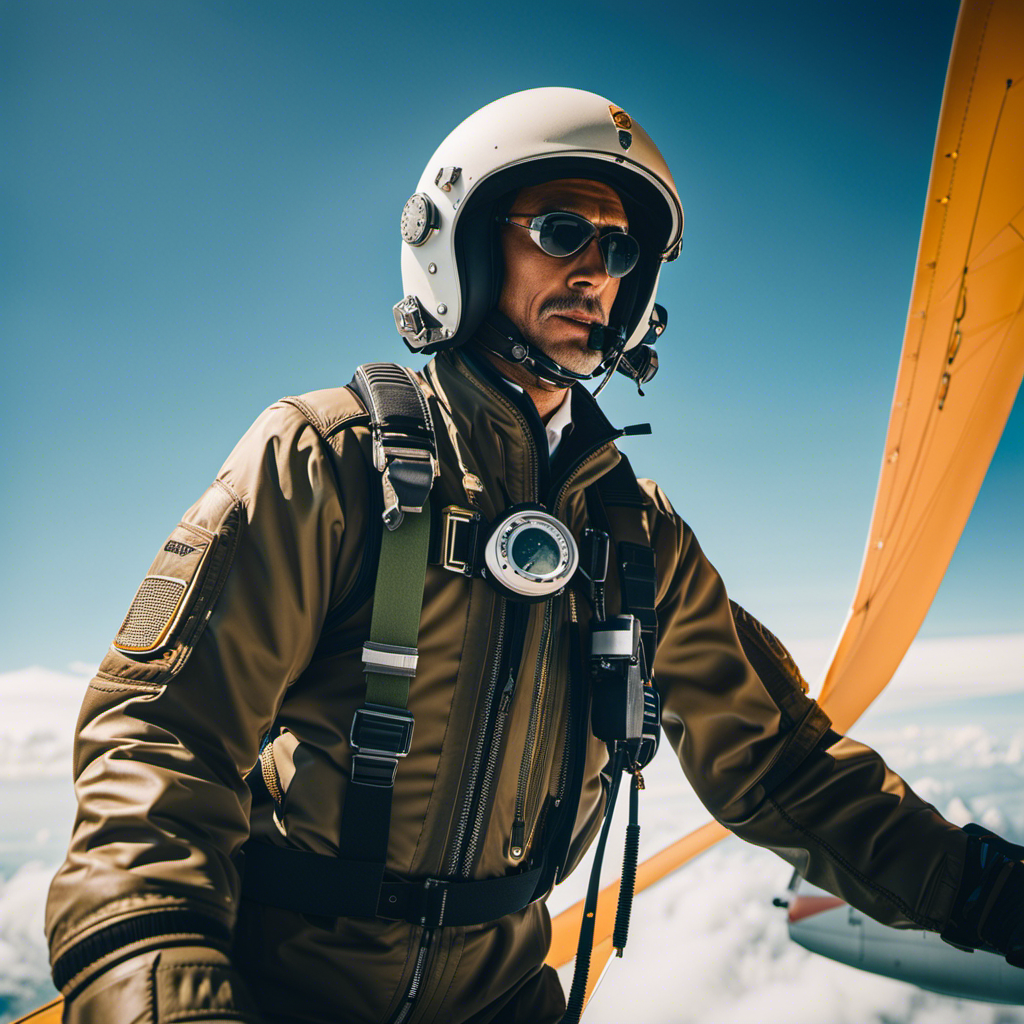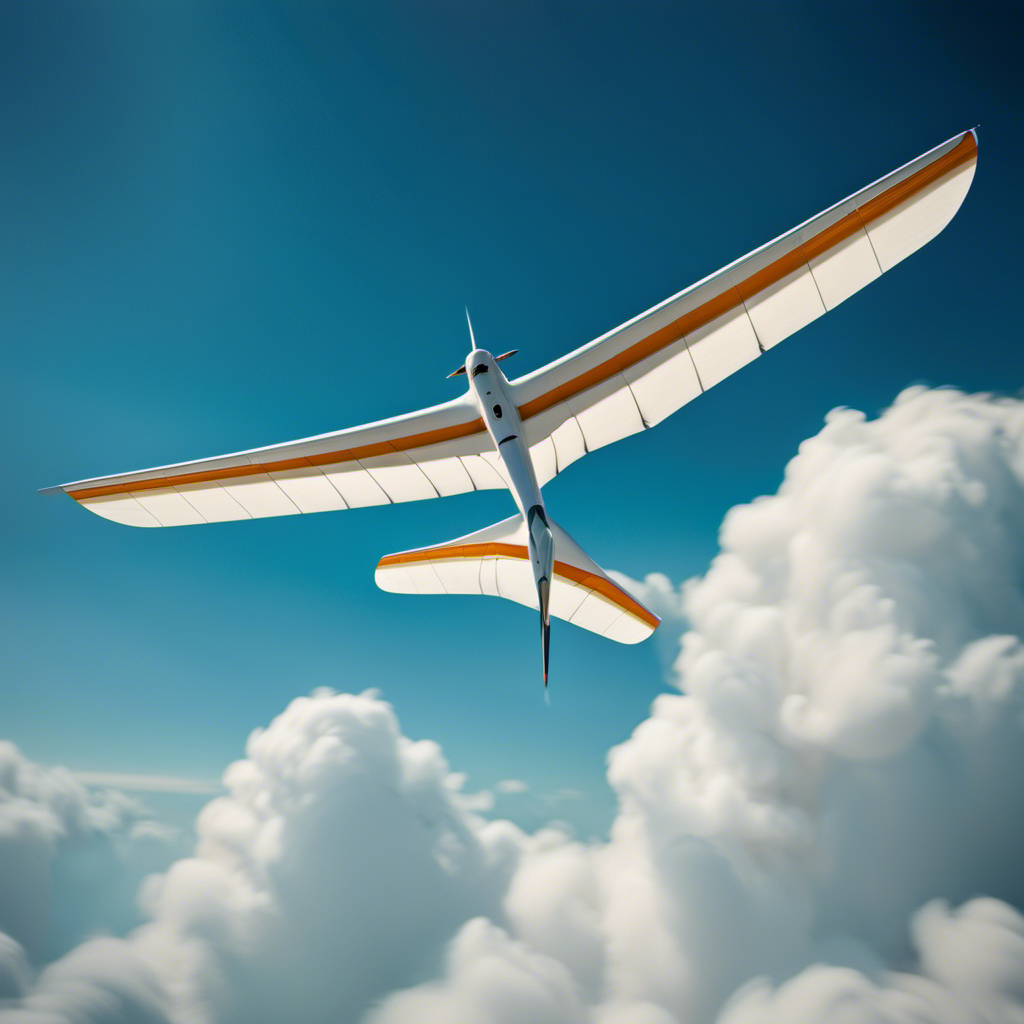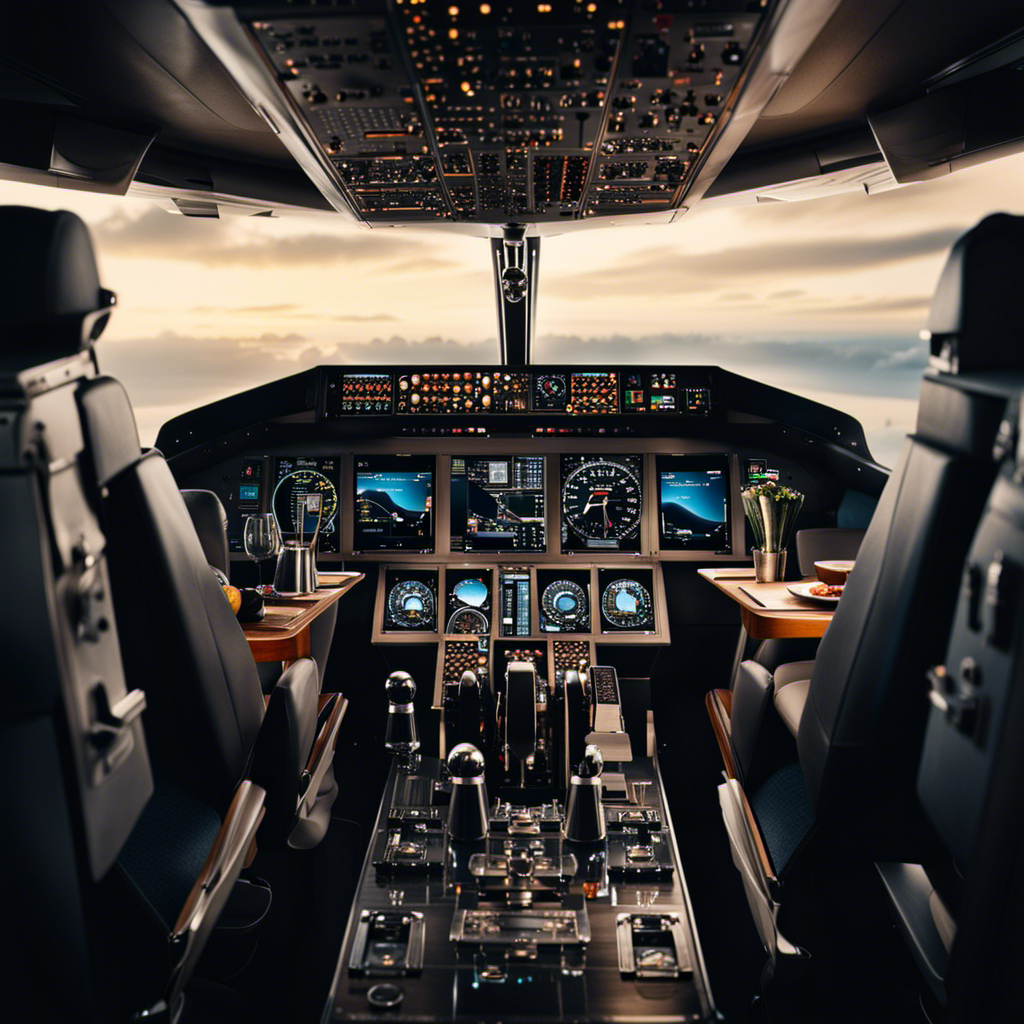Similar to a fine wine, age should not be a barrier to achieving my dream of becoming a private pilot. This article will discuss the age requirements for obtaining a private pilot license.
We will explore the regulations surrounding age requirements, understand the reasoning behind these limits, and uncover any exceptions and waivers.
Additionally, we will discuss career opportunities for pilots of different ages, address age discrimination in the aviation industry, and speculate on the future of age requirements in this field.
So fasten your seatbelts and join me on this informative journey!
Key Takeaways
- The minimum age requirement for a private pilot license is 17 years old, with no maximum age limit.
- Age eligibility criteria ensure safety and competency in flying.
- Age can impact decision-making, physical endurance, cognitive function, memory, reaction time, and physical health, all of which are important for flying.
- Exceptions and waivers are available for individuals who do not meet the age requirements, taking into consideration medical conditions and the ability to safely operate an aircraft.
The Age Requirement for a Private Pilot License
To obtain a private pilot license, you need to know that there are specific age requirements. Age restrictions play a significant role in determining whether an individual is eligible to pursue a private pilot license.
The Federal Aviation Administration (FAA) has established age eligibility criteria to ensure the safety and competency of aspiring pilots. For a private pilot license, the minimum age requirement is 17 years old. This means that individuals must be at least 17 years of age to apply for a private pilot license.
However, it’s important to note that there is no maximum age limit for obtaining a private pilot license. The FAA believes that as long as an individual can satisfy the physical and mental requirements, age should not be a barrier.
Understanding the age requirement for a private pilot license is just the first step in navigating the regulations surrounding age requirements.
Regulations Surrounding Age Requirements
When it comes to aviation regulations, two key authorities that come to mind are the Federal Aviation Administration (FAA) and the International Civil Aviation Organization (ICAO).
The FAA, as the governing body for civil aviation in the United States, sets and enforces regulations that promote the safety and efficiency of air travel within the country.
On the other hand, the ICAO is a specialized agency of the United Nations that establishes worldwide standards and regulations for aviation safety, security, efficiency, and environmental protection.
Understanding and adhering to both the FAA and ICAO regulations is crucial for pilots, airlines, and aviation professionals to ensure the highest level of safety and compliance in the industry.
Federal Aviation Administration (FAA) regulations
You can obtain a private pilot license by following the Federal Aviation Administration (FAA) regulations. These regulations outline the age and medical requirements necessary to become a licensed pilot.
Here’s what you need to know:
-
Age Requirements:
-
To obtain a private pilot license, you must be at least 17 years old. This age limit ensures that individuals have sufficient maturity and responsibility to operate an aircraft safely.
-
However, there is no maximum age limit for obtaining a private pilot license. As long as you meet the medical requirements and pass the necessary tests, you can pursue your dream of flying at any age.
-
Impact on Pilot Shortage:
-
The age limits for obtaining a private pilot license have an impact on the pilot shortage issue. With the retirement of experienced pilots, there is a need for new pilots to fill the gaps.
-
By allowing individuals to pursue their pilot licenses at any age, the industry can attract a diverse range of individuals who may have not considered a career in aviation earlier in life.
Moving forward, let’s explore the international civil aviation organization (ICAO) regulations regarding age and medical requirements.
International Civil Aviation Organization (ICAO) regulations
The International Civil Aviation Organization (ICAO) regulations outline the requirements for obtaining a pilot license, including age and medical qualifications. Age limits for pilot licenses can vary between countries. For example, in the United States, the minimum age for a private pilot license is 17 years old, while in Canada it is 14 years old. These age limits are based on the belief that individuals at a certain age possess the necessary maturity, judgment, and physical capabilities to safely operate an aircraft.
However, the impact of age on pilot performance is a complex topic. While older pilots may have more experience and knowledge, they may also experience declines in physical and cognitive abilities. Understanding the reasoning behind age limits involves considering factors such as safety, training requirements, and overall risk management in aviation.
Understanding the Reasoning Behind Age Limits
When discussing age limits in aviation, it’s important to consider safety considerations, as well as the cognitive and physical abilities required for flying.
Safety is a top priority in the aviation industry, and age limits are in place to ensure that pilots possess the necessary skills and abilities to handle the responsibilities of flying.
Cognitive and physical abilities such as decision-making, problem-solving, and physical endurance are crucial for a pilot to operate an aircraft safely and efficiently.
Safety considerations
Although age is not the sole factor, safety considerations play a significant role in determining the age limit for a private pilot license. When it comes to flying an aircraft, cognitive decline and physical health are crucial aspects to consider. As we age, our cognitive abilities may decline, impacting our decision-making skills and reaction times. Additionally, physical health is essential for operating an aircraft safely, as it requires physical endurance and coordination. To better understand the relationship between age and safety in aviation, let’s take a look at the following table:
| Age Range | Cognitive Decline | Physical Health |
|---|---|---|
| 16-19 | Minimal | Excellent |
| 20-29 | Minimal | Excellent |
| 30-39 | Minimal | Good |
| 40-49 | Possible | Good |
As we can see, cognitive decline and physical health are generally minimal or excellent in younger age groups. However, as we reach our forties and beyond, cognitive decline may become more possible, and physical health may start to decline as well. These factors contribute to the establishment of age limits for private pilot licenses, ensuring that individuals possess the necessary cognitive and physical abilities to operate an aircraft safely.
Cognitive and physical abilities
Cognitive and physical abilities play a crucial role in determining whether an individual can operate an aircraft safely. As we age, it is natural to experience some decline in cognitive function, such as memory and reaction time. These changes can potentially affect our ability to make quick decisions and respond to unexpected situations while flying.
Additionally, maintaining physical fitness is important as it ensures that pilots have the necessary strength and coordination to handle the physical demands of flying an aircraft. Regular exercise and a healthy lifestyle can help mitigate the effects of aging on physical fitness.
Understanding the impact of cognitive decline and the importance of physical fitness is essential for aviation safety. With this knowledge, pilots can take proactive steps to address any challenges they may face. Exceptions and waivers are available for individuals who may not meet all the standard requirements, but we will explore this further in the next section.
Exceptions and Waivers
You can apply for exceptions and waivers to the age limit for a private pilot license. These exceptions and waivers are typically granted when individuals can demonstrate their ability to safely operate an aircraft, regardless of their age.
The impact of medical conditions is taken into consideration when assessing these applications. For example, a person with a medical condition that affects their physical abilities may need to provide additional documentation or undergo medical evaluations to ensure they can safely pilot an aircraft.
It’s important to note that these exceptions and waivers are not granted easily, as safety is the top priority in aviation. However, they do provide an opportunity for individuals who may not meet the standard age requirements to pursue their passion for flying.
Now, let’s explore the age limits for different types of pilot licenses.
Age Limits for Different Types of Pilot Licenses
When it comes to pursuing a career in aviation, it’s important to understand the age requirements for different types of pilot licenses.
For a commercial pilot license, the minimum age requirement is 18 years old.
However, if you aspire to become an airline transport pilot, you must be at least 23 years old.
These age requirements are set by regulatory bodies to ensure the safety and competency of pilots in the commercial aviation industry.
Commercial pilot license age requirements
To obtain a commercial pilot license, it’s important to know the age requirements. In order to pursue a career as a commercial pilot, you must be at least 18 years old. This age requirement ensures that individuals have reached a level of maturity and responsibility necessary for this demanding profession.
Additionally, physical fitness is a crucial aspect of being a commercial pilot. While there are no specific physical requirements outlined by the Federal Aviation Administration (FAA), it is important to be in good health and have the physical stamina to handle long flights and potential emergencies.
Meeting these age and physical fitness requirements opens up a world of exciting career prospects in aviation.
Now, let’s explore the age requirements for an airline transport pilot license.
Airline transport pilot license age requirements
As we delve deeper into the requirements for different pilot licenses, it’s essential to understand the age limit for obtaining an Airline Transport Pilot (ATP) license. The ATP license is the highest level of certification for pilots and is required to fly for commercial airlines.
To qualify for an ATP license, the Federal Aviation Administration (FAA) sets a minimum age of 23 years old. This age requirement ensures that pilots have gained enough experience and maturity before taking on the responsibility of commanding large commercial aircraft.
However, the controversy arises when discussing the retirement age for airline pilots. Currently, the mandatory retirement age for airline pilots in the United States is 65 years old. This age limit has sparked debate, with some arguing that it should be raised due to increased life expectancies and advancements in healthcare. Others believe that it should remain the same to ensure the safety of passengers.
The importance of age in pilot training goes beyond just the initial licensing requirements.
The Importance of Age in Pilot Training
You’ll quickly realize the importance of age as you delve into pilot training and the requirements for a private pilot license. Age plays a crucial role in pilot training, as it affects both the physical and psychological aspects of flying.
Experience is a key factor in pilot training, and while age doesn’t necessarily determine one’s experience, it often correlates with it. As pilots age, they gain more experience, which can enhance their decision-making skills and ability to handle challenging situations in the air.
However, aging also brings about certain psychological changes that can impact a pilot’s performance, such as a decrease in reaction time or cognitive abilities. It is important for pilots of all ages to be aware of these changes and take appropriate measures to mitigate any potential risks.
Moving on to the next section, let’s explore the career opportunities for pilots of different ages…
Career Opportunities for Pilots of Different Ages
Moving on to career opportunities, pilots of different ages have a range of options available to them. Whether you’re just starting out or nearing retirement, the aviation industry offers various paths for career progression.
Here are three key opportunities for pilots at different stages of their professional journey:
-
Entry-level Pilot: Young pilots can join regional airlines or flight schools to gain experience and build flight hours. This is a crucial step towards advancing in their career and eventually flying for major airlines.
-
Mid-career Pilot: Pilots in their prime can pursue opportunities in corporate aviation, charter services, or become flight instructors. These roles offer stability and the chance to explore different sectors of the industry.
-
Senior Pilot: As retirement age approaches, pilots can transition into roles such as aviation consultants, safety inspectors, or become instructors at aviation academies. These positions allow for sharing knowledge and expertise gained throughout their career.
With a wide range of options available, pilots of different ages can find fulfilling career paths in the aviation industry. However, it’s important to address the issue of age discrimination in aviation, which will be discussed in the subsequent section.
Age Discrimination in Aviation
Age-related challenges in the aviation industry are a topic of concern for many professionals. As pilots and other industry workers age, they may face unique challenges such as declining physical abilities and increased regulations.
Efforts to promote diversity and inclusion in the industry aim to address these challenges and create an environment that is inclusive and supportive of individuals of all ages.
Age-related challenges in the industry
While age can present certain challenges in the aviation industry, it doesn’t necessarily limit one’s ability to be a successful pilot. Here are three key age-related challenges that pilots may face:
-
Age discrimination: Unfortunately, age discrimination exists in the aviation industry, with some airlines and training programs favoring younger candidates. This can make it more difficult for older individuals to enter or progress in the field.
-
Age limits in pilot training: Many flight schools and training programs have age limits for certain certifications, such as the private pilot license. These limits vary among countries and organizations, and they can restrict older individuals from pursuing their dream of becoming a pilot.
-
Physical demands of flying: Flying can be physically demanding, and age can affect one’s stamina and reflexes. However, with proper training, regular medical check-ups, and a healthy lifestyle, older pilots can maintain the necessary physical abilities to fly safely.
Despite these challenges, the aviation industry is making efforts to promote diversity and inclusion, recognizing that age should not be a barrier to one’s passion for flying.
Efforts to promote diversity and inclusion
If you’re interested in pursuing a career in aviation, it’s important to know that the industry is actively working to promote diversity and inclusion.
Efforts to increase representation in the pilot population are ongoing, recognizing the benefits that a diverse pilot population can bring. By embracing diversity, the aviation industry not only reflects the multicultural society we live in but also gains access to a wider pool of talent and perspectives.
A diverse pilot population can enhance safety by bringing different experiences and approaches to problem-solving. It can also help to break down stereotypes and inspire future generations of aspiring aviators from underrepresented backgrounds.
As the industry continues to prioritize diversity and inclusion, it’s important to look ahead and consider the future of age requirements in aviation.
The Future of Age Requirements in Aviation
In considering the future of age requirements in aviation, it is important to explore potential changes to age limits and the impact of technological advancements.
The aviation industry has traditionally set age limits for various roles, such as pilots and air traffic controllers, based on certain physical and cognitive abilities.
However, as technology continues to advance and new solutions emerge, there may be opportunities to reassess these age limits and adapt them to the changing landscape of aviation.
Potential changes to age limits
There’s talk of potential changes to the age limits for obtaining a private pilot license.
As the aviation industry evolves, it is crucial to periodically review age requirements to ensure the safety and competency of pilots.
The current age limit for a private pilot license is 17 years old, but there are discussions about raising or lowering this threshold.
The Federal Aviation Administration (FAA) and other aviation authorities are considering various factors, such as advancements in technology, medical research, and training standards.
These potential changes aim to strike a balance between allowing younger individuals to pursue their passion for aviation and ensuring that they possess the necessary skills and maturity to handle the responsibilities of flying.
As we delve into the impact of technological advancements on age requirements, we begin to see how these changes could shape the future of aviation.
Impact of technological advancements on age requirements
You should consider how technological advancements may influence the requirements for obtaining a pilot license.
One of the key areas where technology is making an impact is in the age requirements for pilots. With the advent of artificial intelligence (AI), there is a growing debate about whether AI can compensate for any decline in cognitive abilities that may come with age. This has led to discussions about potentially raising the age limit for pilots, as AI can assist in performing complex tasks and decision-making.
Additionally, the implications of population aging on pilot licensing cannot be ignored. As the population ages, there will be a need for more pilots to meet the demand. However, this also raises concerns about the physical and mental capabilities of older pilots.
Conclusion and Advice for Aspiring Pilots
Our conclusion is that aspiring pilots should carefully consider the age limit for a private pilot license. When it comes to career advancement in aviation, age can play a significant role.
As we have discussed, technological advancements have led to increased automation in aircraft systems, making it easier for pilots to handle complex tasks. However, mental health considerations are equally important. Pilots must be able to handle the stress and pressure that come with the job. It is crucial to assess one’s mental and physical capabilities before pursuing a pilot license.
While age is not the sole determinant, it is essential to acknowledge that older individuals may face challenges in meeting the demands of the profession. Aspiring pilots should evaluate their personal circumstances and consult with professionals to make an informed decision about pursuing a private pilot license.
Frequently Asked Questions
Can someone under the age of 16 obtain a private pilot license?
No, individuals under the age of 16 cannot obtain a private pilot license. Age restrictions are in place to ensure safety and compliance with aviation regulations. However, with parental consent, they can begin flight training and pursue their career aspirations in aviation.
Are there any exceptions to the age requirements for a private pilot license?
Are there any exceptions to the age requirements for a private pilot license? Well, while there are no exceptions for a private pilot license, there is an age limit for a commercial pilot license.
Are there different age limits for different types of pilot licenses?
Different pilot licenses have different age limits. The minimum age for a private pilot license is 17, while the minimum age for a commercial pilot license is 18.
Is there a maximum age limit for obtaining a private pilot license?
The maximum age for obtaining a private pilot license varies by country, but generally there are no age requirements. As long as you meet the medical and training requirements, you can pursue a private pilot license regardless of your age.
Are there any career opportunities for older individuals who want to become pilots?
Career prospects for older individuals who want to become pilots are promising. Many airlines are facing a pilot shortage and are actively recruiting experienced individuals. It’s a great way to stay engaged and earn income during retirement.
Conclusion
In conclusion, age should not be seen as a barrier when pursuing a private pilot license. There are regulations and age limits for safety reasons, but exceptions and waivers are possible. Aviation offers career opportunities for pilots of all ages. Age discrimination may exist, but age requirements in aviation are constantly evolving. Aspiring pilots should stay informed and pursue their dreams without letting age hold them back. After all, as the saying goes, "Age is just a number."









